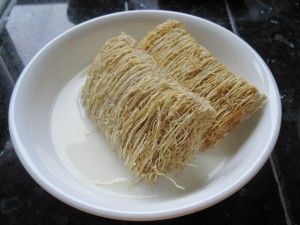
In 1938, the National Biscuit Company (now known as Nabisco) brought a lawsuit against the famous cereal brand Kellogg. They alleged that Kellogg’s creation of a shredded wheat product was unfair completion for one of their products. The National Biscuit Company argued that Kellogg’s pillow-shaped cereal was way too similar to their shredded wheat product. They also objected to the use of the term “shredded wheat”.
U.S. Supreme Court Justice Louis Brandeis rejected the National Biscuit Company’s claim. He deemed that Kellogg would be allowed to continue making shredded wheat in the same shape. The court further argued that the picture of the shredded wheat had Kellogg’s name plastered right on it. They declared that no one would confuse Kellogg’s shredded wheat with Nabisco’s shredded wheat. The court did not believe that Kellogg was trying to pull a fast one. Justice Brandeis stated that the name “Shredded Wheat” was a description and that the pillow shape was functional. He declared it non-trademarkable.
This was a landmark case during a time when trademark law was unstable. The ruling still stands as a decision for trademark cases. It became the foundation of other intellectual property laws such as the Lanham Act and the Functionality Doctrine. The Lanham Act of 1946, signed by President Harry Truman, prevents false advertising, trademark dilution, and trademark infringement among other things. It has been amended several times since its enactment. The Functionality Doctrine refers to a business or individual’s right to produce a product that is competitive to or a rival of another. Designs of products that are fundamental to functionality are not protected by trademark or unfair competition laws.
What do you think Thomas Jefferson would say about that?

